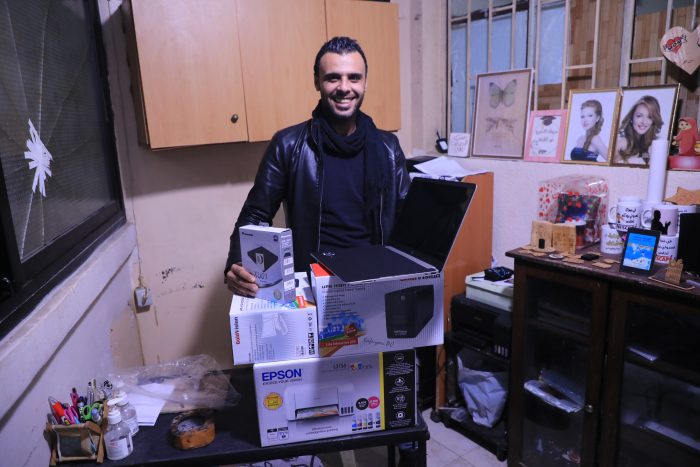Jafra Foundation: Supporting Palestinian Refugees in Lebanon’s Crisis
Since 1948, Palestinian refugee camps in Lebanon have endured successive humanitarian crises. The community has been severely affected by displacement, dire living conditions, and the prolonged Lebanese Civil War. Furthermore, the deprivation of civil rights and essential services within the camps has been exacerbated by Lebanon’s profound economic collapse since 2019.
This already critical situation was worsened by a confluence of events: the Beirut Port explosion, banking restrictions on withdrawals, and the widespread impact of the COVID-19 pandemic and its frequent lockdowns. These factors delivered a significant blow to an already crippled job market and a paralysed economy. Most recently, the latest conflict directly impacted camps in South Lebanon and other areas where leaders were targeted, further deepening the crisis.
Refugees of all backgrounds in the country continue to struggle with the dramatic rise in living costs and persistent power outages. Prices for fuel and essential goods have long surpassed being unaffordable. Critically, income sources are scarce across Lebanon, but particularly so within the already vulnerable Palestinian refugee camps. These compounded challenges have created dire living conditions and an escalating need for humanitarian assistance.
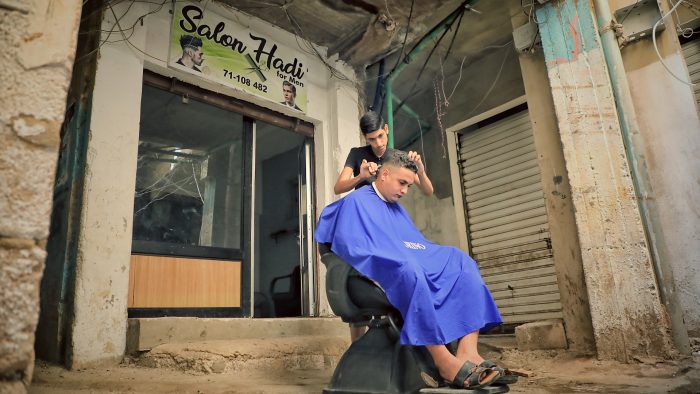
Among the Palestinian refugees, poverty soared. Palestinian camps and communities continue to suffer from loss of livelihood as well as a decline in UNRWA services due to decreased international funding. Both the latter and the US government’s decision to suspend aid to UNRWA forced the UN agency to announce at the beginning of 2018 that it was facing a serious crisis in securing the funding necessary to continue providing services, particularly in the education and health sectors, to the Palestinian refugees.
Since beginning operations in 2018, the Jafra Foundation has expanded its reach to five different regions across Lebanon. We now serve: Shatila and Burj el Barajneh camps in Beirut, Ein El Hilweh camp, Rashideh and Borj Shemali in South Lebanon and Beddawi camp, Naher Albared Camp and Al-Mankubeen area in Tripoli.
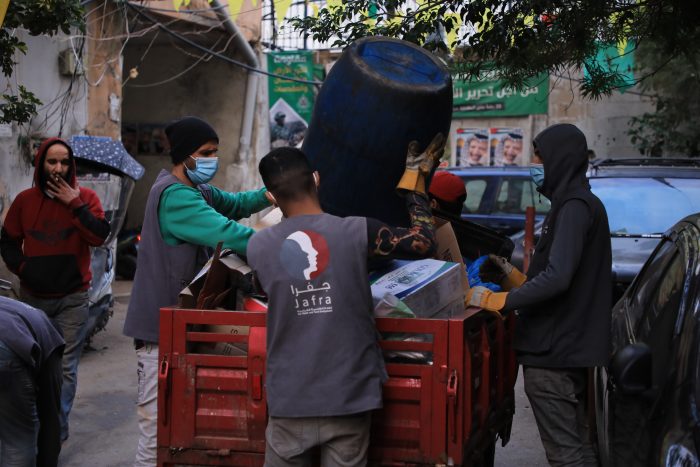
The Jafra Foundation’s presence in Lebanese refugee camps
In these camps, the Jafra Foundation implements cleaning and waste collection programs in the camps, through “The Cash for Work” program, where unemployed youth are involved in cleaning the streets of the camp and collecting waste, aiming to reduce diseases and epidemics and achieve a clean camp environment. In the Women’s Program, the Foundation implements a project to properly prepare and package food; women are trained and employed to prepare food baskets to be distributed to high need families inside the camp. Furthermore, national events are revived, sports teams are established in each camp, and other volunteering activities take place.

In Lebanon, the Jafra Foundation is working on a capacity-building program. Throughout the years, the Foundation’s staff have been able to build up their humanitarian and development work experiences in the Palestinian camps. The work throughout the Syrian and Lebanese crises has deepened this experience and enhanced local experiences in working in times of conflict or emergency. The Foundation team developed a comprehensive and intensive training curriculum aimed at building the capacities of local workers in local organisations and at all levels. The training curriculum covered several topics such as leadership, organisation and project management, risk analysis, developing strategies and internal fundamentals, financial and logistical principles, monitoring and evaluation, public relations, and leadership skills.
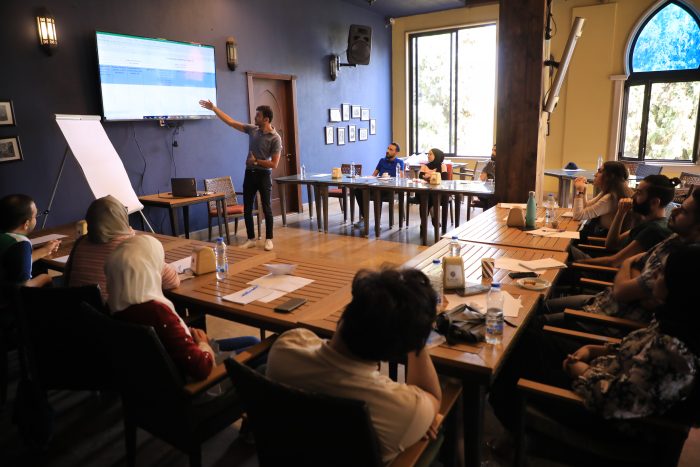
Through accumulated experience, the Jafra Foundation has been able to succeed in continuing to provide services, overcome all difficulties and avoid risks to ensure the continuity of work, particularly in the waste management domain and all the basic services provided by the foundation inside and outside the Palestinian camps.
Thus, we sincerely thank and appreciate the teams operating in the Palestinian camps field in Lebanon, especially for their serious handling of the crises they are going through, mostly with the worsening health crisis due to coronavirus spread and the poverty and unemployment rate growth among Palestinian refugees whose situation went downhill as a result of the economic and political crisis that is ravaging Lebanon. Since the Palestinian camps and refugees are among the most vulnerable groups in general, they will naturally suffer more than others, besides the poor and disadvantaged groups in Lebanon.
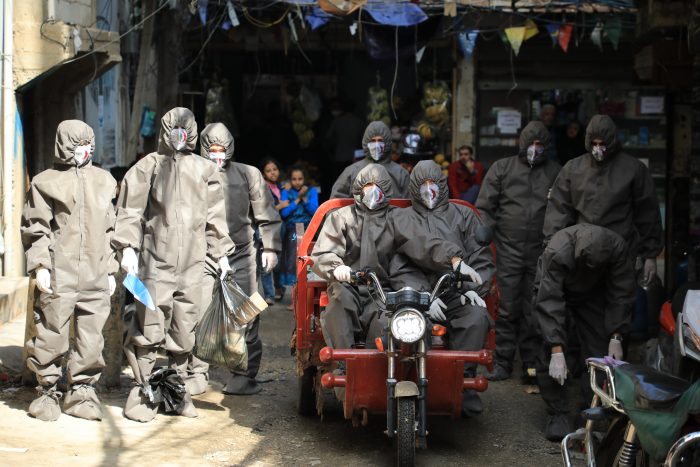
Agriculture is important to the Palestinian people
The Jafra Foundation’s Livelihood Enhancement Program is actively working to revitalise agricultural practices within Palestinian camps. This effort directly connects to the history of Palestinian refugees, many of whom have agricultural roots before being displaced from their homeland and forced to settle in crowded camps where farming is impractical.
While many refugees found agricultural work after seeking asylum, the shrinking availability of farmland due to population growth led to a decline in farming in favour of urban employment, such as construction and other sectors. However, in some camps, like Al-Rashedieh, residents continue to work extensively in agriculture thanks to their proximity to arable land.
The Jafra Foundation recognised this potential and developed an urban agriculture training program. This initiative focuses on utilising available spaces within the camps to cultivate crops, aiming to improve these areas and provide produce for neighbourhoods and local communities. Our work includes establishing organic rooftop gardens and offering specialised training in vertical farming and other urban agricultural techniques directly within the Palestinian camps.
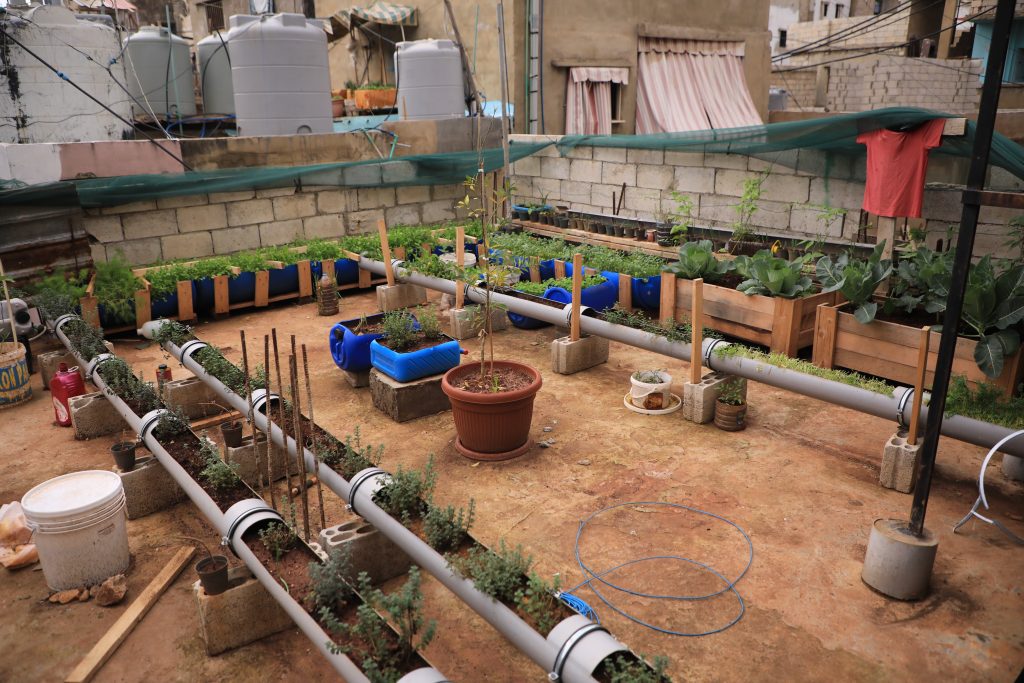
Beyond cultivating crops, agricultural work acts as a powerful catalyst for environmental restoration, cultural enrichment and national pride. It breathes life into camp landscapes, transforming them with vibrant greenery and diverse harvests. Educational and recreational activities, often held on these green rooftops, engage children and young people of all ages and foster a connection to nature.
Concurrently, in Lebanon, the Jafra Foundation is dedicated to empowering local economies of all ages. We achieve this by supporting small to medium-sized projects through tailored training courses and crucial one-time funding for businesses, workshops and community events. This commitment has already seen over 200 small and medium-sized projects thrive across the Shatila and Burj el Barajneh camps.
